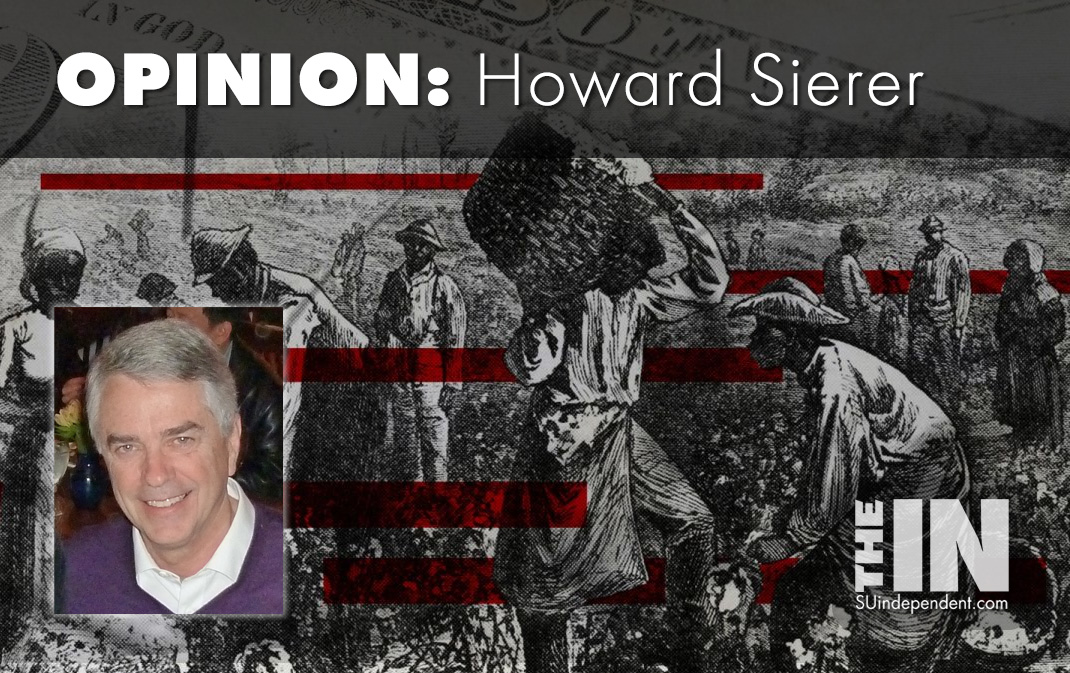
Will Slavery Reparations Work?
– By Howards Sierer –
California was never a slave state, and New York outlawed slavery in 1827, yet legislatures in both states are pandering to blacks by proposing cash reparations. California’s version would result in payments of up to $1.2 million each for descendants of slaves and for the subsequent effects of “systemic racism.”
Despite the fact that slavery ended 160 years ago, progressives claim that it is directly responsible for today’s poor outcomes for too many blacks. Will cash reparations improve black outcomes?
A look at past well-intentioned but flawed attempts at reparations in various forms shows that they not only didn’t work but actually made black outcomes worse.
Black author Shelby Steele asks, “Didn’t the 1964 Civil Rights Act launch an era of reparation in America? There was school busing for integration, free public housing, racial preferences in college admissions, affirmative action in employment, increasingly generous welfare payments and so on.”
But instead of enabling progress, these programs halted the steady and significant progress blacks had made from 1900 to the 1960s.
A New York Times article by Shaylyn Garrett and Robert Putnam explains that “In terms of material well-being, Black Americans were moving toward parity with white Americans well before the victories of the civil rights era. What’s more, after the passage of civil rights legislation, those trends toward racial parity slowed, stopped and even reversed.”
Author Steele says “the Great Society was profoundly disingenuous. It was a collection of reparational reforms meant to show an America finally delivered from the tarnish of its long indulgence in racism. The Great Society was a gigantic virtue signal. It was moral advertising when the times called for the hard work of adapting a long-oppressed people to the demands of the modern world.”
The Great Society’s racial preferences changed the focus on racial inequality from laws ensuring equal rights to identity politics. As a result, racial identity group preferences permeate American life today with identity surpassing opportunity as a fundamental value for many. In response, Congress has created a breathtaking number of entitlements that flow to identity groups that can claim victim status.
Steele opposes cash reparations: “Another government-imposed wealth-redistribution scheme won’t do the trick, but it will almost certainly make race relations worse and encourage blacks to continue seeing themselves primarily as victims who have no control over their lives. The reparational model of reform, in which governments and institutions try to uplift the formerly oppressed, has failed.”
Per a 2022 Pew Research poll, 68% of Americans oppose reparations. Unsurprisingly, a large majority of blacks support reparations. Yet large majorities of Asians and Hispanics oppose them despite the fact that they have every reason to claim past mistreatment.
Chinese and Japanese immigrants, often brought here as indentured laborers, have been lynched, placed in internment camps, relegated to segregated schools, denied property rights and subjected to prejudiced judges in what amounted to kangaroo courts. Yet today, Chinese and Japanese Americans rank higher than whites in a number of criteria.
Hispanics, who have not been subject to more discrimination than blacks, nonetheless have slightly lower average incomes than blacks, according to the Bureau of Labor Statistics. It follows that lower-than-average black incomes must reflect factors in addition to any lingering effects of slavery, factors that cash will not improve.
As he often does, Dr. Thomas Sowell gets to the heart of the question: “Have we reached the ultimate stage of absurdity where some people are held responsible for things that happened before they were born, while other people are not held responsible for what they themselves are doing today?”
Today’s rebirth of the reparations movement is another evidence that the progressive left’s focus on race isn’t about improving race relations but instead is about enhancing progressive power by convincing black Americans that they are victims who need government protection.
If black reparations are enacted, where will reparations for other groups stop? Are LGBTQ reparations next? Why shouldn’t all women demand reparations?
Cash reparations are nothing more than another progressive wealth redistribution scheme: ill-conceived, certain not to solve the problem and loaded with unforeseen consequences. Let common sense prevail.



